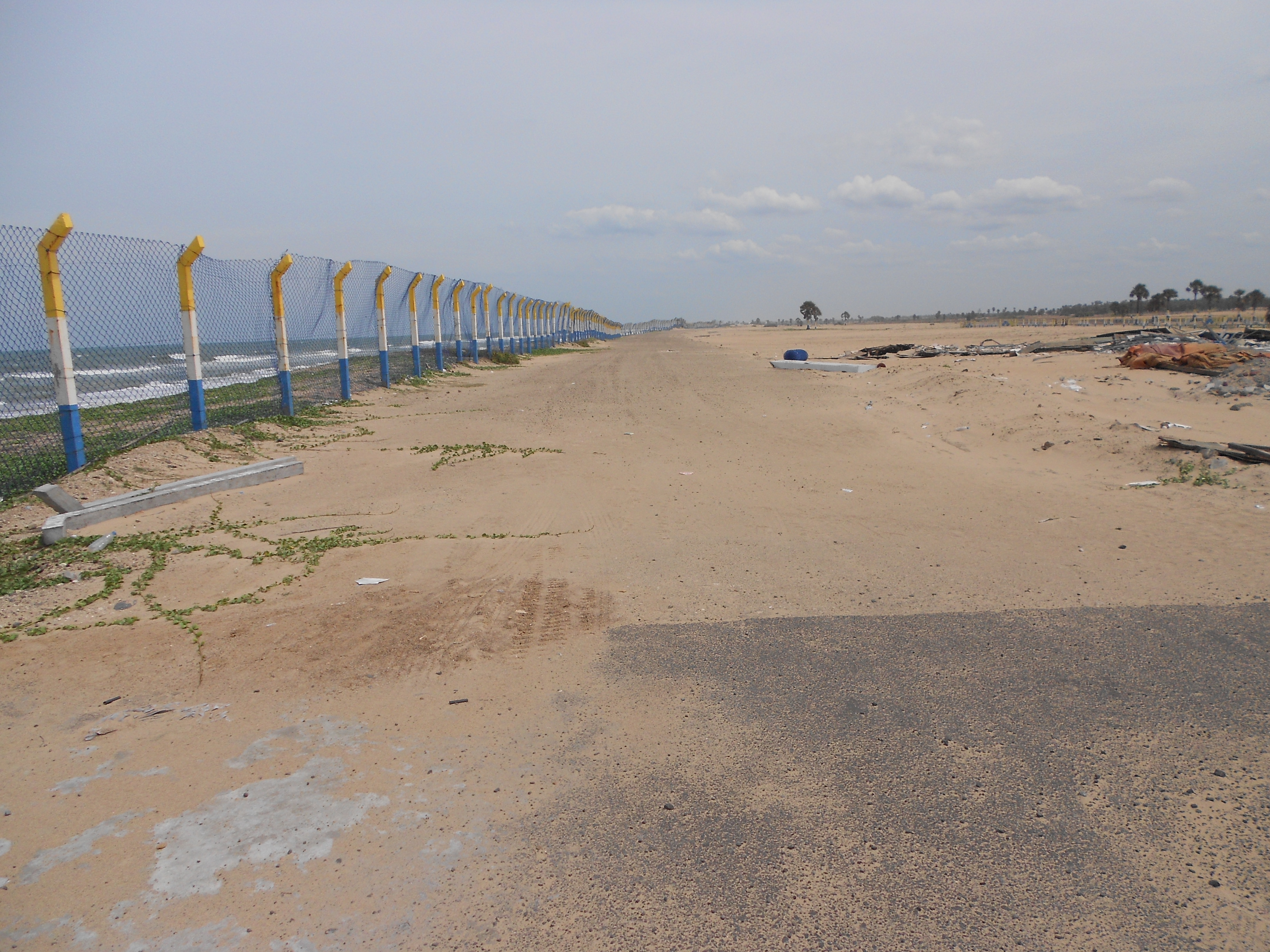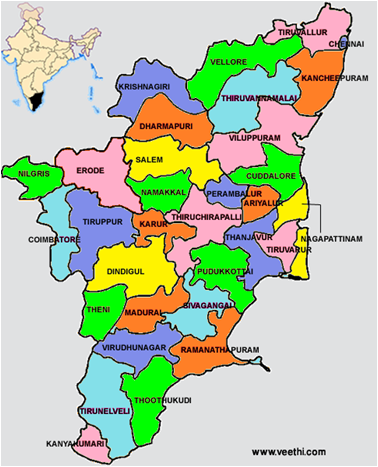Community Based Coastal Monitoring System
 |
Community Environmental Monitoring of The Other Media | |
 |
Pooja Kumar | |
 |
http://www.theothermedia.in | |
 |
US$5000 |
Research Background Final Report (abstract) Others

The coast in Tamil Nadu

The map of Tamil Nadu
Research Background
Tamil Nadu is a coastal state that is witnessing rapid development in India. Predominantly, India's fishing communities are small scale or artisanal fishers dependent on the sea and other tidal influenced water bodies for their livelihood. In Tamil Nadu, fishers live in 591 coastal hamlets across 13 coastal districts. Stretches of coastal beach land are the primary livelihood and living space for these fishers. However, livelihood spaces on the beach and at sea are systematically being encroached upon or degraded by the development of industries, ports, real estate and elite recreational hubs. The quality of living spaces is rapidly shrinking and fishers are stuck between a landward moving sea and seaward moving city.
The Indian government introduced the Coastal Regulation Zone Notification 2011 with an aim to regulate all development on the coast of the Indian Subcontinent. This notification also provides special provisions for the protection of traditional and customary land use by fishing communities over coastal common lands, while stressing on the importance of a long term housing plan for the coastal population. It is clear thus that a stringent enforcement of the provisions in the CRZ Notification, 2011 can provide significant level of protection for coastal ecosystems and communities. While the state government has a mandate to identify and regulate coastal violations, the lack of a systematic participatory working mechanism, which can report violations of the coastal regions leads to the conversion of acres of coastal land to other uses every year thus further damaging the coast and making it more vulnerable to ecological degradation and climate related disasters.
With this background in mind, this research aims to:
1. Use community mapping as a tool to document customary and traditional rights of fishers over coastal common land.
2. Develop a GPS enabled smartphone app that records and disseminates information to regulatory authorities.
3. Organize workshops and trainings to increase public participation in the regulation and enforcement of the provisions under CRZ Notification 2011.
4. Initiate public discourse around the importance of common lands in building resilience to cyclones, rains, floods, heat waves and water scarcity.
5. Assist coastal communities challenge illegal development on the coast and protect coastal ecology and commons.
[Sep. 2016]
Final Report (abstract)
Tamil Nadu is a coastal state that is witnessing rapid development in South-East India. Artisanal, small scale fishers live in 591 coastal hamlets across 13 coastal
districts. Stretches of coastal beach land are the primary livelihood and living space for these fishers. Unlike agriculture and horticulture where land can be
privately held, coastal areas fall under the category "Poramboke", or coastal commons where the land is in the custody of the government and fishers enjoy
customary, traditional usage rights. The Government of India introduced the Coastal Regulation Zone Notification in the year 2011, providing significant
level of protection for the protection of coastal communities' life, livelihood and ecosystems. However, there is sparse and disengaged enforcement of the
law by regulatory agencies and as a result livelihood spaces on the beach and at sea are systematically being encroached upon or degraded by the
development of industries, ports, real estate and elite recreational hubs. This project aims to create a community based coastal monitoring system through
which local communities are empowered to identify, report and take collective actions on destructive developmental activity on the coastal areas.
The government has a mandate to identify and regulate coastal violations,however, it has failed on many counts.
- there is a lack of a systematic participatory working mechanism that canreport violations of the coastal regions.
- there is no coordinated government process/project to identify violations.
- results in conversion of thousands of acres of coastal areas into real-estate and other uses every year.
- This further damages the coast and making it more vulnerable to ecologicaldegradation and climate related disasters.
With this background in mind, we are:
1. Developing a GPS enabled smartphone app that records and collates information to enable regular notices to regulatory authorities.
2. Making community mapping a tool to document customary and traditional use of life and livelihood space on the coast.
3. Organizing workshops and trainings to increase public participation in the regulation and enforcement of the provisions under CRZ Notification 2011.
4. Initiating public discourse around the importance of common lands in building resilience to cyclones, rains, floods, heat waves and water scarcity.
5. Assisting coastal communities challenge illegal development on the coast and protect coastal ecology and commons.
Others
